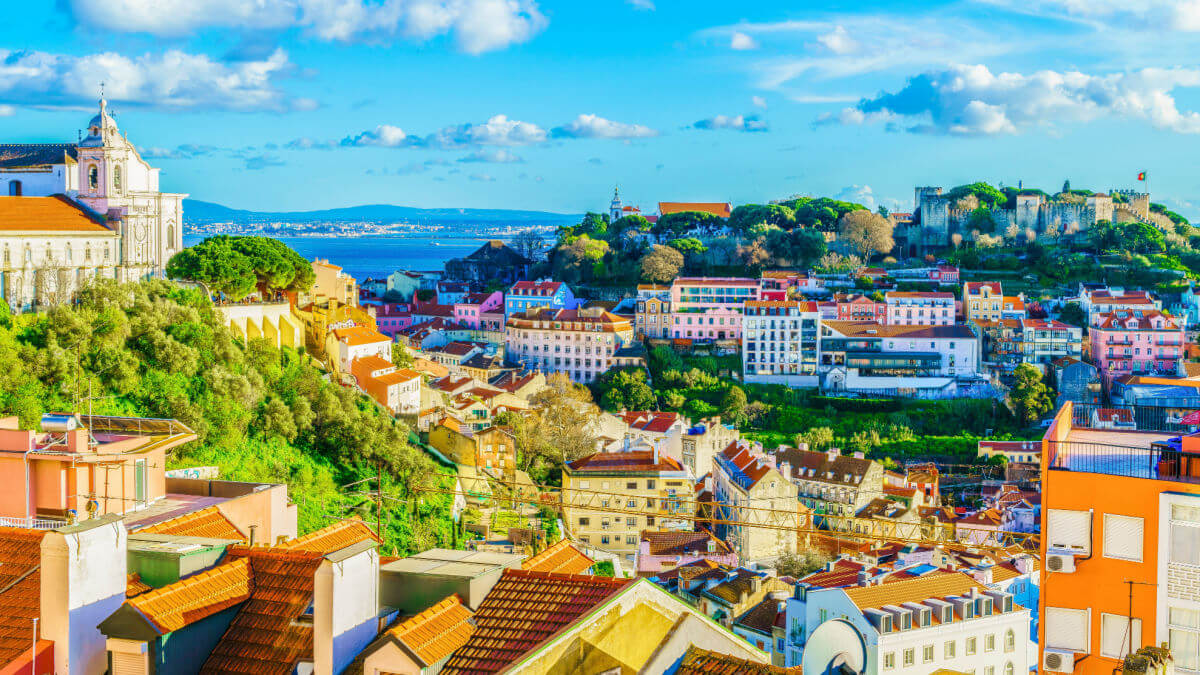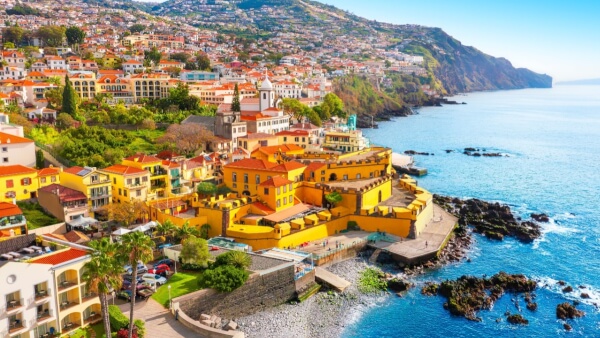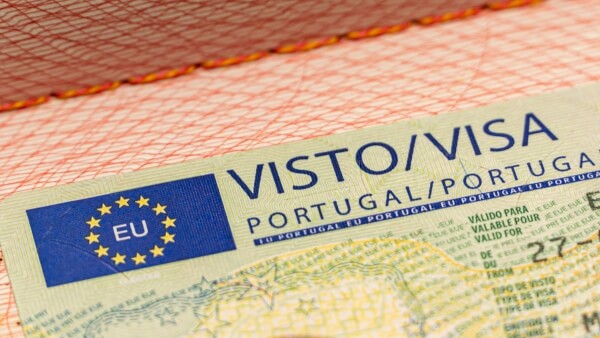Risks and pitfalls of buying property in Portugal
Read our guide on the pitfalls of buying property in Portugal and avoid the most common mistakes.

Dreaming of moving to the historic city of Porto or the vibrant metropolis of Lisbon from the UK? If you’re thinking of living, working or buying a home in Portugal, this guide is for you.
Here, we’ll run through all the various long-stay residence permits you can apply for in Portugal, as well as their expected costs and requirements.
We’ll also touch on a convenient and low-cost way to manage your money internationally, both before and after your move, with a financial services provider Wise. Open a Wise account online and you can send money between countries for low fees and mid-market exchange rates.
Learn more about the Wise account
Please see the Terms of Use for your region or visit Wise fees & pricing for the most up-to-date information on pricing and fees.
In Portugal, there are a handful of different types of residence permits and visas suitable for UK citizens.
Each of these gets its name from the legal article that governs it, as well as whether a residence visa has already been granted.¹
There are three main types of residence permits for people who want to live and work in Portugal. However, there are many others to consider, depending on your situation:²
When people talk about residence permits in Portugal, they are usually talking about either Article 88, Article 89 or Article 90 permits.
In all three cases, it will most likely be granted as long as you correctly submit the application and supporting documents. You must also:³
The big difference between these three types is that for an Article 90 Permit, your average salary must be 1.5 times the average gross annual salary (€1752.52 or £1527.45 per month).⁴
In all of these cases, an approved residence permit will last two years and will be extended for at least three years each time.³
Much like other European countries, the residency process is often undertaken in multiple stages.
Whilst the short-stay visa or visa exemption is more separate, the residency visa is typically the first stage of a residency programme.
Yes you can, under the terms of the Withdrawal Agreement.
British passport holders can travel to any country in the Schengen Area (which includes Portugal), for up to 90 days in any 180-day period without requiring a visa.⁵
One important note to make is that in Portugal you are expected to carry proof of identification with you at all times. You must show it to police officers or judicial authorities if asked.⁶
Exactly how much a Portuguese residence permit costs is unclear. Whilst there is no stated cost for the permit itself, there are a lot of costs to manage as part of the application process.
As the residency visa is a core part of the application process, it needs to be included in the overall price first.
A residency visa application costs €90 (£79) in processing fees.⁷
This does not include any additional costs for solicitors or specialists to help you fill out the application. It also does not include the costs to collate documentation you need such as UK and Portuguese police certificates.⁸
The administration costs for setting up health insurance for your stay, social security and tax registration are also not factored into this.
You may need to set up a bank account with one of the large, high street banks in Portugal, and exchange pounds for euros to put into it, which may also have some additional charges.
Handling this complexity is far easier with the help of a Wise account. This helps you to manage the myriad of different fees you need to pay in the currencies you need to pay them in, for low fees and fair exchange rates.
Please see the Terms of Use for your region or visit Wise fees & pricing for the most up-to-date information on pricing and fees.
Applying for a residence permit in Portugal is roughly a four-step process. Whilst the precise requirements can vary between the different types of residency, the overall process is largely similar.
The first step is to get into Portugal with the right to reside and work there long term. This requires applying for the residency visa with the help of the Portuguese Consulate General’s application partner VFS Global.⁹
This involves collating your supporting documentation for the entire process. Here’s what you’ll need:³
It is best to get as much of this collated and notarised before your visa application, as your residence permit application will take place in Portugal.
With your documents ready, here’s what to do next:
Your application will take at least a month before you get a decision or request for more information. Once completed, you will be able to pick up your passport from the application centre you applied at.
Once you are approved, book an appointment at a local SEF bureau when you arrive in Portugal. They will help you to confirm your visa, register with the tax and social security departments and begin your residence permit application.
While it can take multiple months to get a residence permit, you can work in the country before it is finalised.
The residency visa application takes at least a month, and depending on how busy the SEF bureau is, the residence permit can take weeks-to-months.
This is why you should start your application as soon as possible, to ensure no complications or delays get in the way of your long-term stay in Portugal.
A residence permit lasts two years initially, and is renewed for three years each time.³
Portugal, like many other countries, has a family unification policy, which in this case is the Article 98 permit.¹⁰
This is applied for in the same way as other residence permits. You first apply for a residency visa for the purpose of family reunification.
You then pay the €90 fee for adults and €45 for children⁷ and start the family union residency application in Portugal.
Once completed and accepted, family members will receive the same permit rights as the original sponsor.
Hopefully after reading this guide, you should have a better idea of how to get the residence permit in Portugal. We’ve looked at the main permit types suitable for UK citizens, along with fees and how to apply.
You should be all set for the next stage of your Portuguese adventure, whether it’s buying property in Portugal or opening a local bank account.
Sources used:
Sources last checked on date: 15-May-2023
*Please see terms of use and product availability for your region or visit Wise fees and pricing for the most up to date pricing and fee information.
This publication is provided for general information purposes and does not constitute legal, tax or other professional advice from Wise Payments Limited or its subsidiaries and its affiliates, and it is not intended as a substitute for obtaining advice from a financial advisor or any other professional.
We make no representations, warranties or guarantees, whether expressed or implied, that the content in the publication is accurate, complete or up to date.

Read our guide on the pitfalls of buying property in Portugal and avoid the most common mistakes.

Read our guide to living in Portugal as an expat, covering cost of living, job opportunities, healthcare and more.

Read our complete guide to the Portugal digital nomad visa (D8 visa), covering fees, documents, eligibility requirements and application process for 2025.

Read our guide on Portugal's healthcare as a UK expat. Learn about public and private options, costs, and more for a smooth transition to your new home.

Read our guide to Portugal Golden Visa for UK residents: a path to EU citizenship, Schengen travel, and more. Learn about investments and application steps.

Thinking of applying for a Portuguese passport? Read our guide on the Portugal citizenship by investment programme, featuring requirements, costs and benefits.